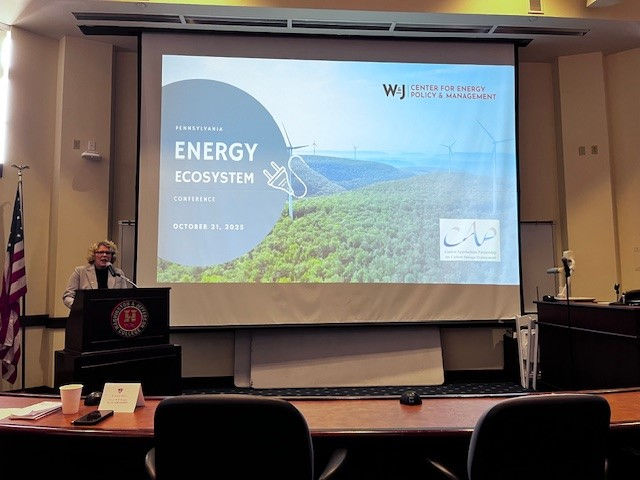Justice40: Bringing Energy Transition Benefits to Disadvantaged Communities
- Linda Ritzer
- Mar 15, 2023
- 2 min read
“Justice40: Bringing Energy Transition Benefits to Disadvantaged Communities” will be the subject of a free, hour-long webinar at 11 a.m. April 5. It is the third, and last installment, of the Energy Lecture Series for this spring from the CEPM. The speaker will be Sonrisa Lucero, Special Advisor for Stakeholder Engagement in the Office of Economic Impact and Diversity at the U.S. Department of Energy.
The Justice40 Initiative was established by executive order as part of President Biden’s climate and clean energy efforts to address decades of underinvestment in disadvantaged. While development policies have historically been located in low-income and minority communities, the initiative will bring resources to disadvantaged communities by using environmental justice principles.
The Justice40 initiative directs that 40 percent of overall benefits of federal investments in clean energy and transit, energy efficiency, workforce development, and remediation of legacy pollution are directed to communities defined as disadvantaged. The DOE has developed a definition for determining such communities, using a formula that includes environmental and climate hazards, fossil fuel dependence, socioeconomic data, and other considerations.
As clean energy investments funded through the Bipartisan Infrastructure Law begin to materialize, it is important for businesses, local and regional governments, community organizations, and other stakeholders to understand what the Justice40 initiative could bring to disadvantaged communities in the region under environmental justice principles.
Lucero will provide an overview of the Justice40 program and energy justice efforts, how funding will be leveraged to disadvantaged areas, and the community benefits plan. She will also discuss the importance of community engagement in the process and how stakeholders can have input in clean energy decisions early in project discussions.
Sonrisa Lucero is Special Advisor for Stakeholder Engagement in the Office of Economic Impact and Diversity at the U.S. Department of Energy. She was most recently the Equitable Buildings Decarbonization Manager at RMI, where she led the efforts to integrate equity into carbon-free buildings policy and advocacy. She received her degree in Environmental Systems Engineering from Stanford University.
The seminar is approved for Continuing Legal Education in Pennsylvania, West Virginia, and Ohio. Contact the Washington County Bar Association at wcba@washcobar.org for information.
To register, visit wjenergy.org or click here! The seminar is approved for Continuing Legal Education in Pennsylvania, West Virginia, and Ohio. Contact the Washington County Bar Association at wcba@washcobar.org for information.



Comments